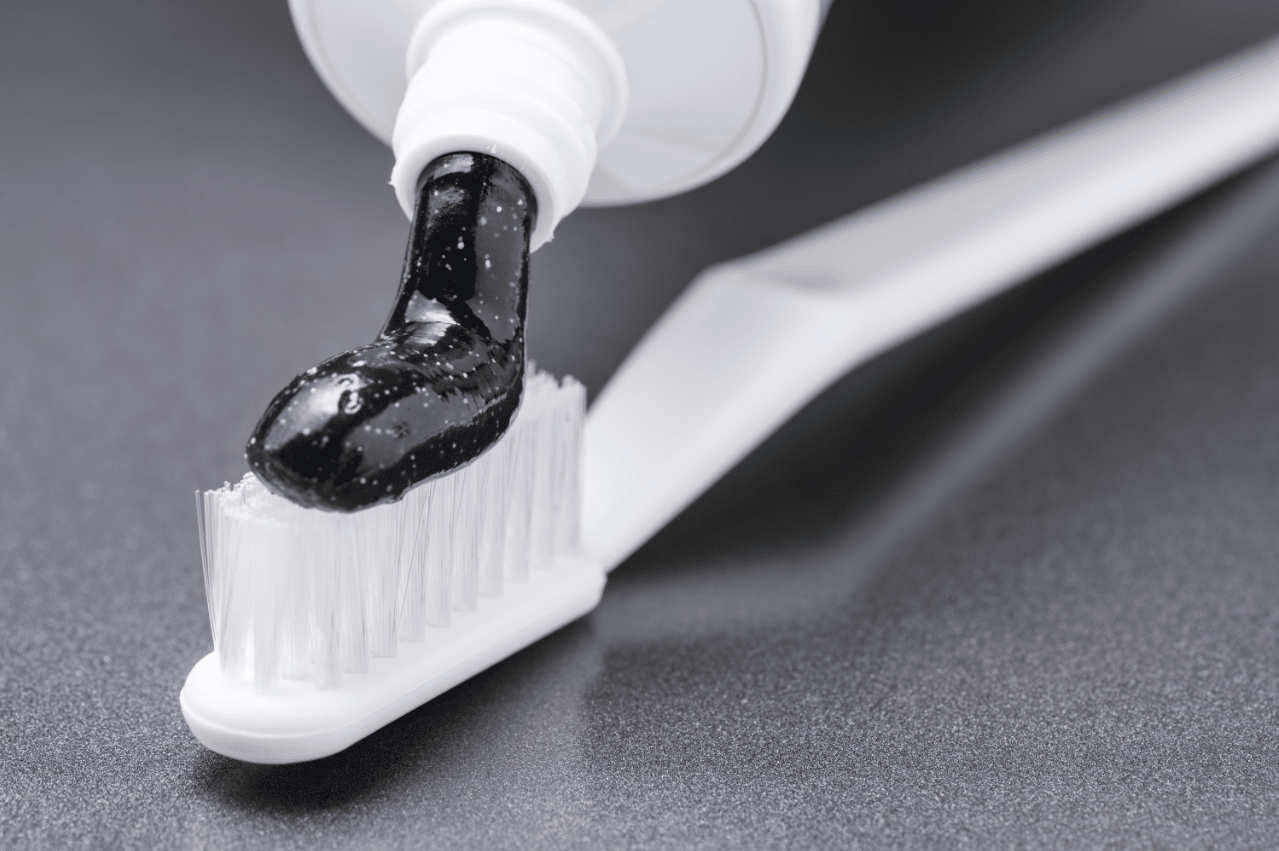Is Charcoal Toothpaste Safe and Does it Work?


When you think of charcoal, what comes to mind? You might picture grilling up a burger with charcoal briquettes or drawing a picture with a charcoal pencil. Activated charcoal is also used in air and water filters. Recently, dental researchers have started putting activated charcoal in toothpaste. Sound bizarre? Learn more about charcoal toothpaste, how it works, and whether you should try it.
What is Activated Charcoal?
The kind of charcoal used on the grill and in artist’s pencils is not the same thing as medical activated charcoal. Regular charcoal is produced by slowly burning natural materials such as peat, wood, and coconut husks. Activated charcoal takes this one step further by treating regular charcoal to make it more porous.
The resulting nooks and crannies attract dirt, oil, and other unwanted substances, which is what makes it a useful ingredient in air and water filters. Activated charcoal even absorbs and traps toxic chemicals, so it’s often used as a standard treatment for accidental poisoning.
Why Put Charcoal in Toothpaste?
It stands to reason that if activated charcoal can remove dirt from water and poison from your digestive system, it could remove stains, tartar, and germs from your teeth. In fact, some dentists say it can remove surface stains caused by wine, coffee, tea, tobacco, and other dark- or brightly-colored foods and drinks. Just don’t expect charcoal to whiten your teeth the way a bleaching product can.
The notion of using charcoal in toothpaste is nothing new. In fact, an 1860s home encyclopedia described how to make homemade toothpaste with ground charcoal as an ingredient. Even back in ancient Roman days, people used powdered charcoal and bark to help clean their teeth.
Is Charcoal Toothpaste Safe?
Some people have concerns about the abrasiveness of charcoal. However, if you’re still picturing lumps of charcoal briquettes, think again. Ground charcoal is closer to the consistency of baking soda, an ingredient that has been used in whitening toothpaste for decades.
However, if you have sensitive teeth, the abrasiveness of charcoal could be an issue. You don’t want to wear down your enamel, or the outermost layer of your teeth, which doesn’t grow back. That’s why, regardless of the toothpaste you use, you should always apply gentle pressure when brushing your teeth.
What about the black color? Charcoal toothpaste is supposed to remove surface stains, but couldn’t it leave a sooty appearance behind? Luckily, that’s not a problem with charcoal toothpaste. As for the taste, charcoal toothpaste contains flavoring agents, just like any other mint toothpaste.
Some people are concerned about charcoal’s ability to absorb medications. The LA Times observes that eating activated charcoal has been known to interfere with the effectiveness of drugs, such as hormonal birth control pills, rendering them ineffective. The good news is that, unless you swallow your toothpaste (which we don’t recommend), activated charcoal has a very little chance of affecting the prescriptions in your digestive tract and bloodstream.
Be aware that most charcoal-based toothpastes do not have fluoride. A majority of dentists recommend using fluoride toothpaste unless special circumstances apply, such as if you have allergies or are choosing toothpaste for a young child. For this reason, many people who try charcoal toothpaste use it every other day for its stain-removing capabilities, sticking to their regular fluoride toothpaste the rest of the time to continue fighting dental decay.
Does Charcoal Toothpaste Really Work?
In the last decade, the oral care industry has seen a resurgence of charcoal toothpaste with claims ranging from whitening and breath freshening to providing antibacterial, antiviral, and antifungal benefits. Some labels even sport the word “detoxifying.”
However, while activated charcoal can lift away plaque and food particles to leave your mouth feeling fresh and clean, the effect is no more dramatic than what you might see with any toothpaste. According to an article published in the Journal of the American Dental Association, the therapeutic claims made by some charcoal toothpaste brands are “unsubstantiated” and “misleading.” Here are JADA’s conclusions:
The results of this literature review showed insufficient clinical and laboratory data to substantiate the safety and efficacy claims of charcoal and charcoal-based dentifrices. Larger-scale and well-designed studies are needed to establish conclusive evidence.
So, the jury is still out on charcoal toothpaste. For now, it’s hard to say whether it’s just a fad, or if it’s here to stay. Still, many people feel like charcoal in toothpaste is worthwhile. If you’re curious, feel free to give it a try—you can find charcoal-based toothpaste online and in some drug stores for around the same price as regular toothpaste. And if you choose to skip it, rest assured that you’re not missing out on the latest scientific breakthrough.
For more dental news, or to schedule an appointment with a Boulder dentist, please call Dr. Ania’s office today at 303-443-0998.


